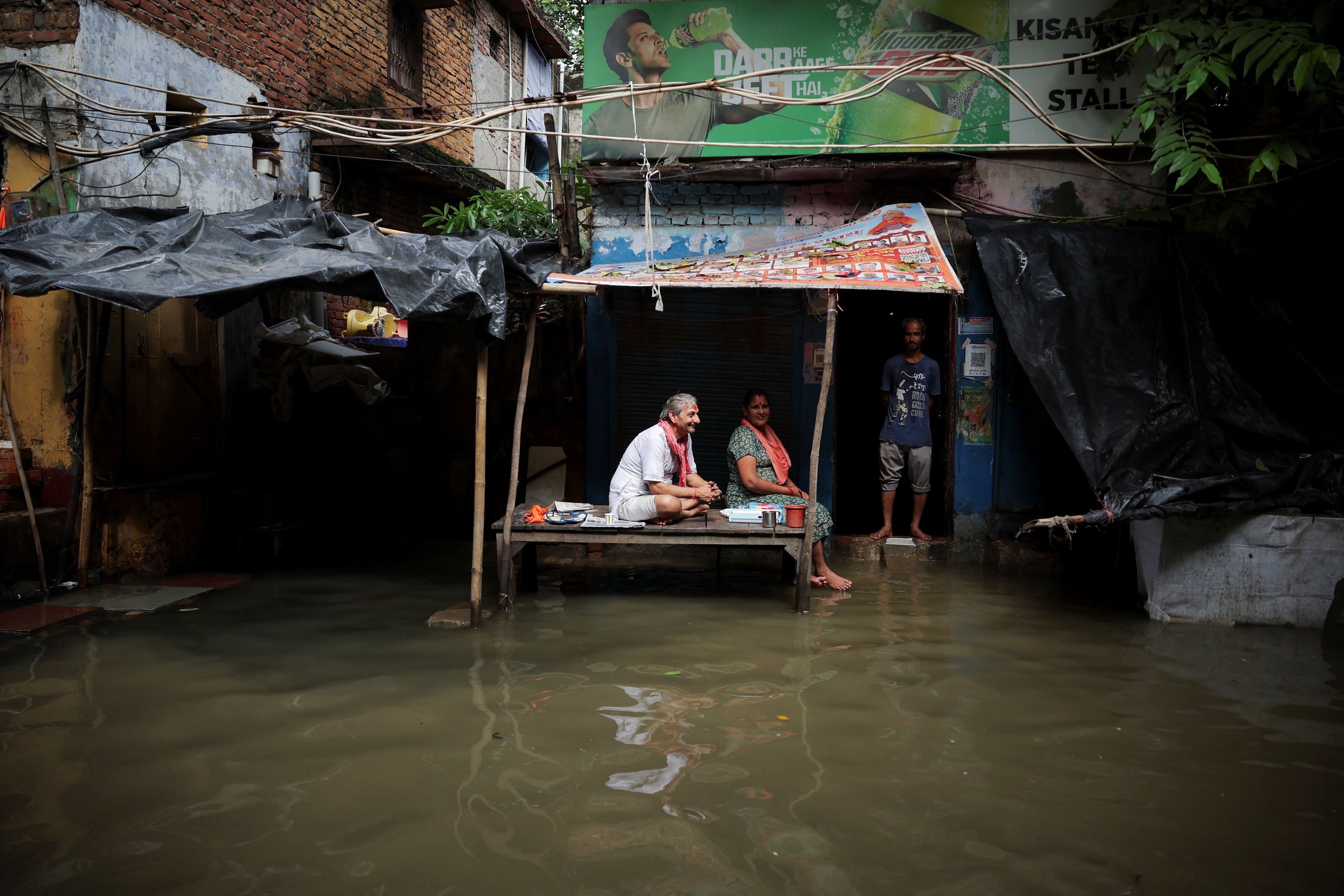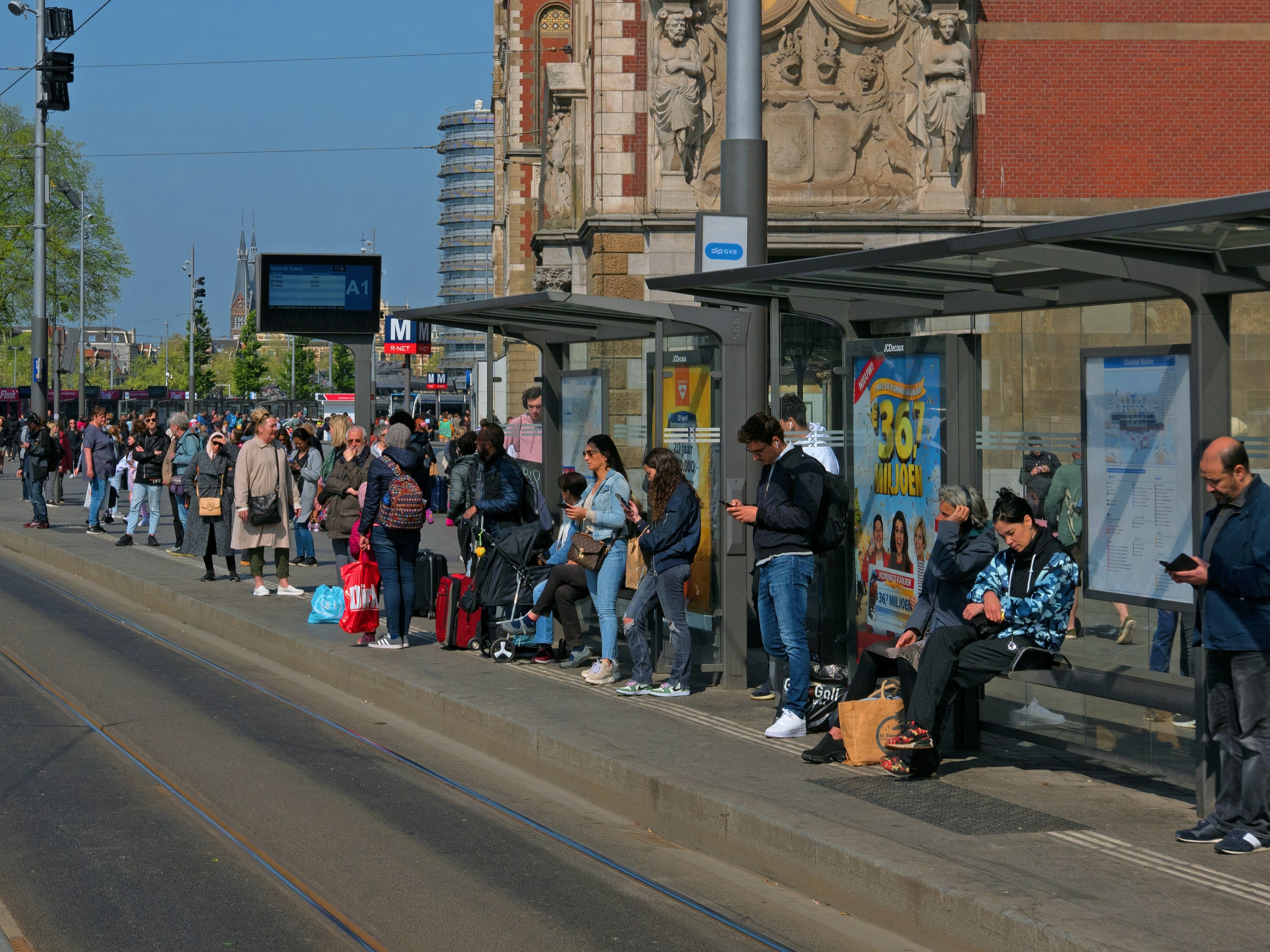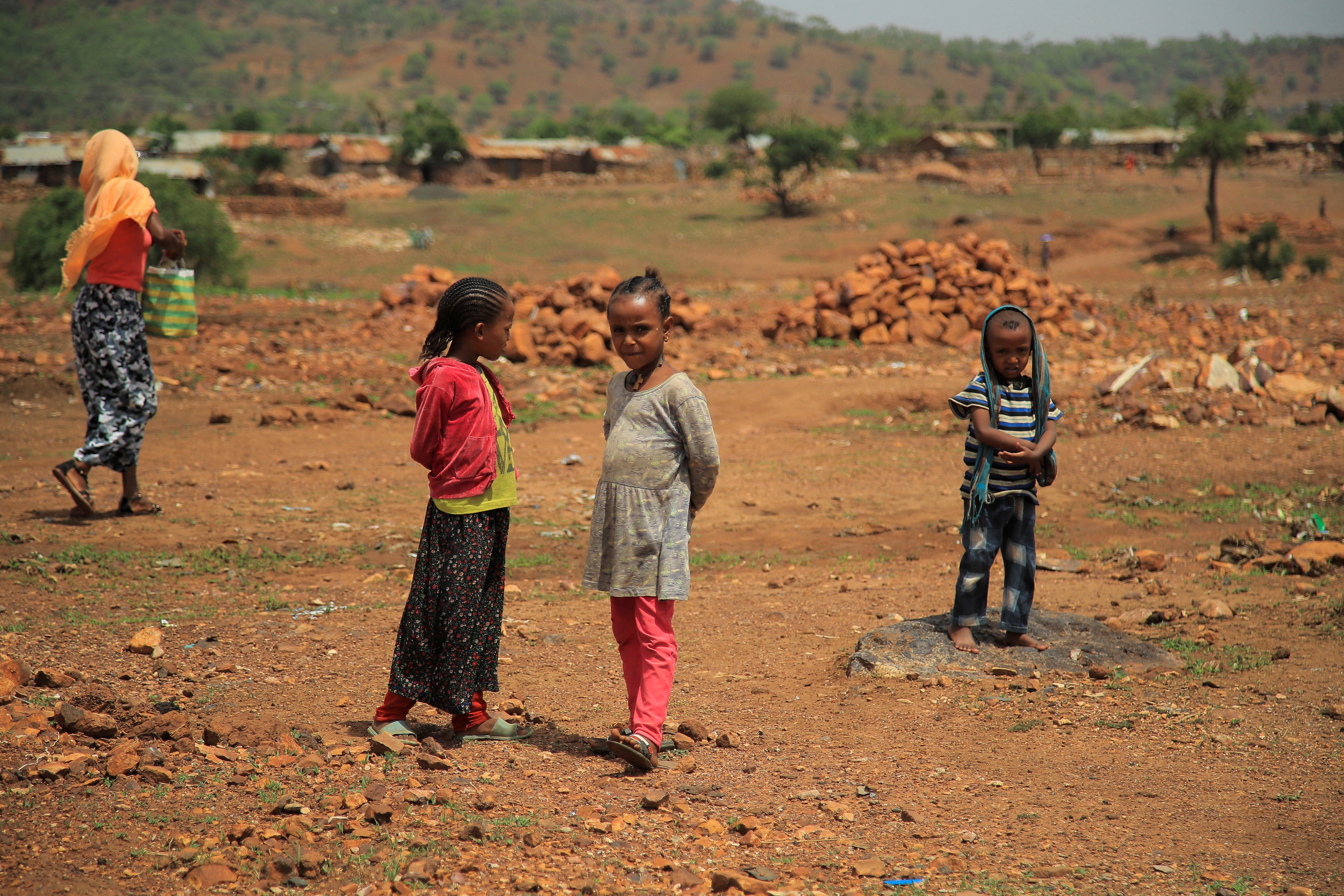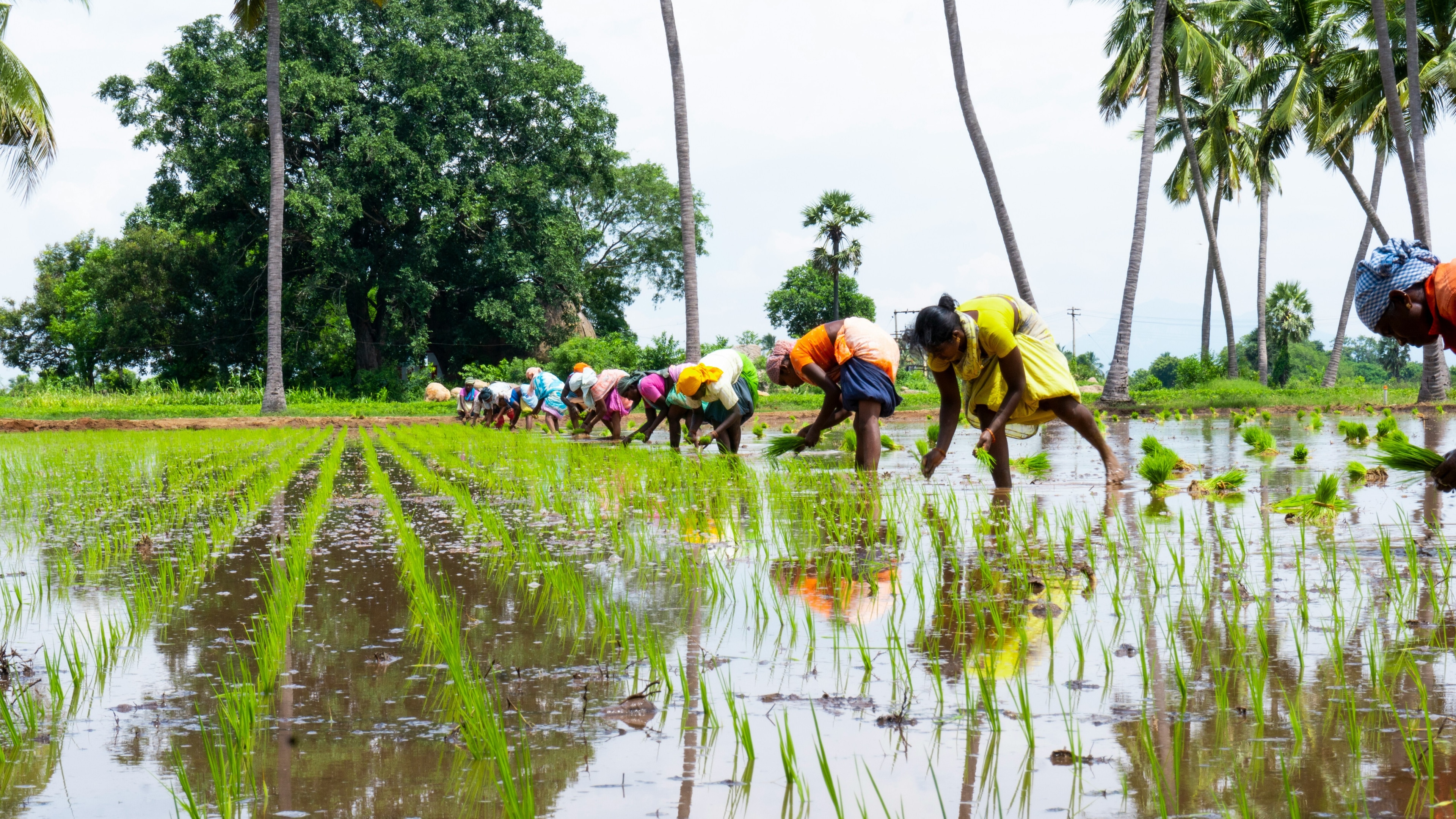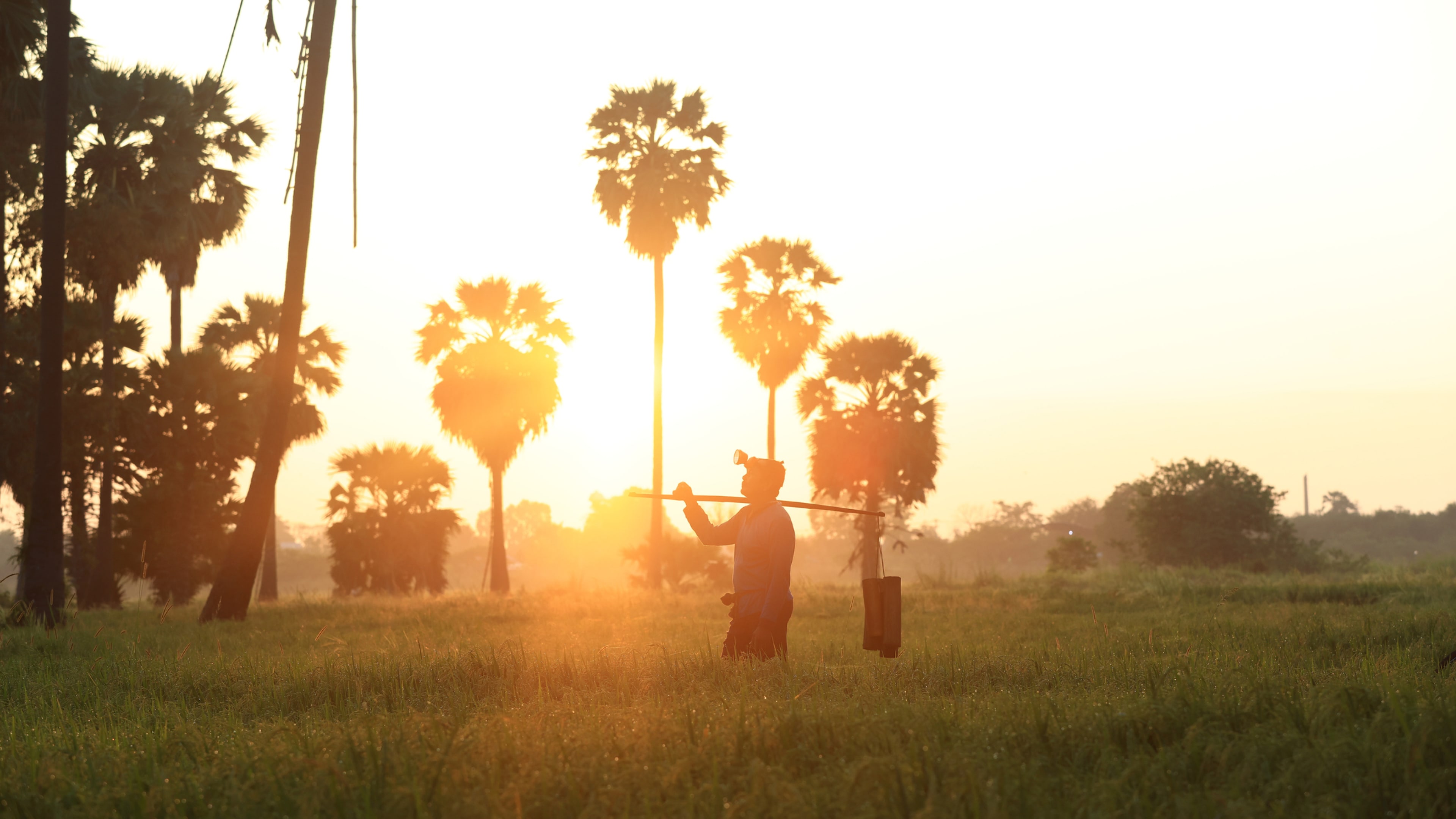This ground-breaking skyscraper could feed an entire African town

The goal of the tower would be to bolster agricultural opportunities and fight hunger in impoverished towns. Image: REUTERS/Aly Song
Every year, the design magazine eVolo holds a competition for the most ground-breaking skyscraper concepts.

This year's first place winner is the Mashambas skyscraper, a vertical farm tower that would be able to feed an entire town in sub-Saharan Africa. The conceptual skyscraper could also be disassembled, and moved to different locations where communities need it.
Designed by Polish architects Pawel Lipiński and Mateusz Frankowski, the tower would grow produce on the upper floors and would come with fertilizer and seeds. The other floors would feature kindergarten classrooms, a doctor's office, and even a docking port for drones that would deliver food to hard-to-reach areas. The ground floor would include an open-air market, where farmers could sell their crops.
Part of the tower would be made of modular pieces, which would allow it to be taken apart and transported somewhere else. (Though, the designers do not say how long that process would take.)
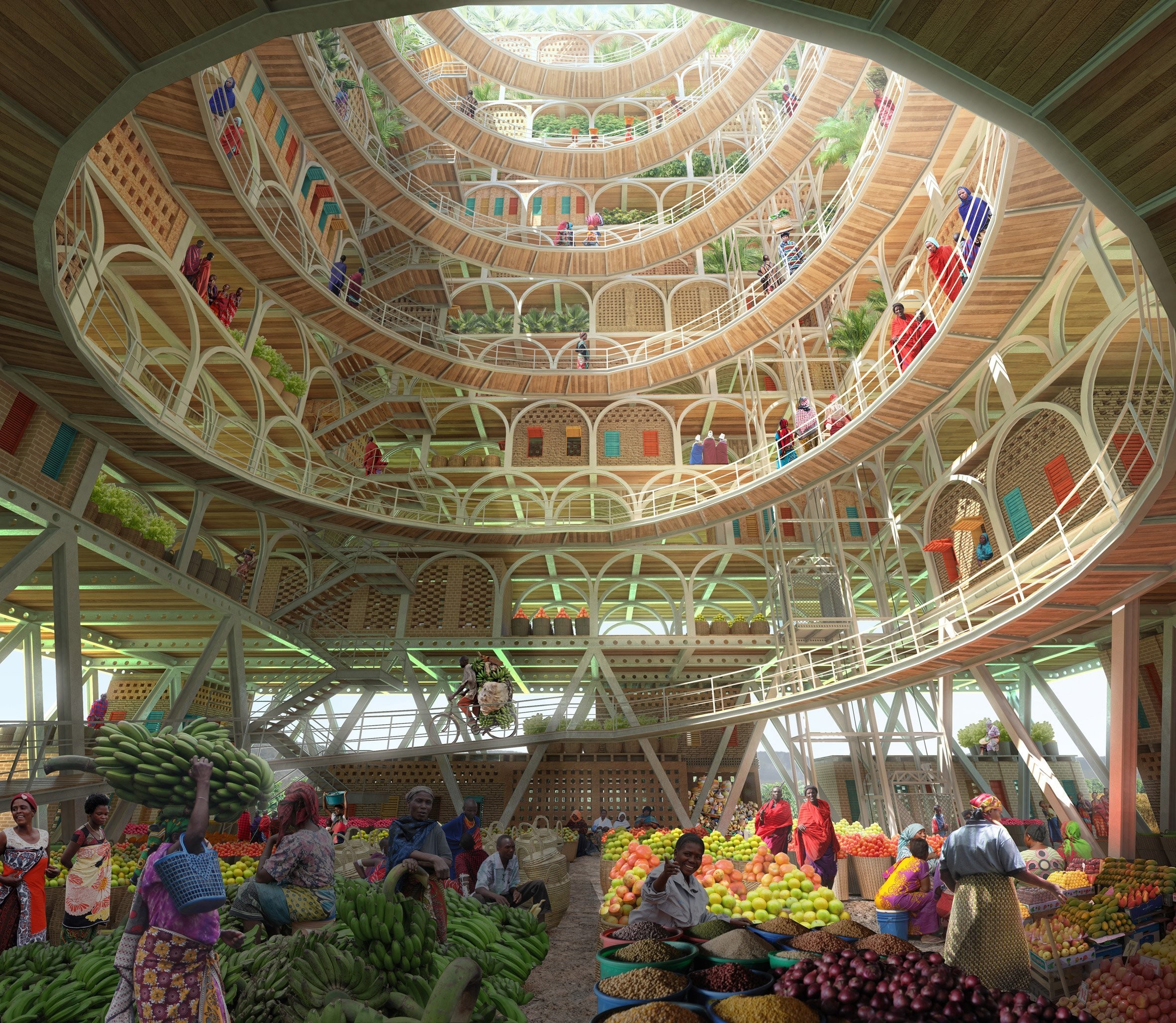
Pawel Lipiński and Mateusz Frankowski
"The main objective of the project is to bring this green revolution to the poorest people," Lipiński and Frankowski write. "Giving training, fertilizer, and seeds to the small farmers can give them an opportunity to produce as much produce per acre as huge modern farms."
Its name, Mashambas, is a Swahili word that means cultivated land, Lipiński and Frankowski write. The goal of the tower would be to bolster agricultural opportunities and fight hunger in impoverished towns in African countries.

"When farmers improve their harvests, they pull themselves out of poverty. They also start producing surplus food for their neighbors. When farmers prosper, they eradicate poverty and hunger in their communities," the designers write.
Though he share of Africans living in poverty declined from 56% to 43% from 1990 to 2012, many more African people are poor today due to population growth, according to a recent World Bank report.
"Today hunger and poverty may be only African matter, but the world’s population will likely reach nine billion by 2050. Scientists warn that this would result in global food shortage," the designers write. "Africa’s fertile farmland could not only feed its own growing population, it could also feed the whole world."

Announced April 10, the tower was chosen from a pool of over 400 entries. Though the designers did not name an exact site for a Mashambas skyscraper, they said the first one could be in a town south of the Sahara desert. The design is merely a concept right now, and there are no plans to actually build one.
Though the design is certainly far-fetched, the vision behind it explores what rural farms of the future could look like.
Don't miss any update on this topic
Create a free account and access your personalized content collection with our latest publications and analyses.
License and Republishing
World Economic Forum articles may be republished in accordance with the Creative Commons Attribution-NonCommercial-NoDerivatives 4.0 International Public License, and in accordance with our Terms of Use.
The views expressed in this article are those of the author alone and not the World Economic Forum.
Stay up to date:
Innovation
Forum Stories newsletter
Bringing you weekly curated insights and analysis on the global issues that matter.
More on Resilience, Peace and SecuritySee all
Shoko Noda and Kamal Kishore
October 9, 2025

